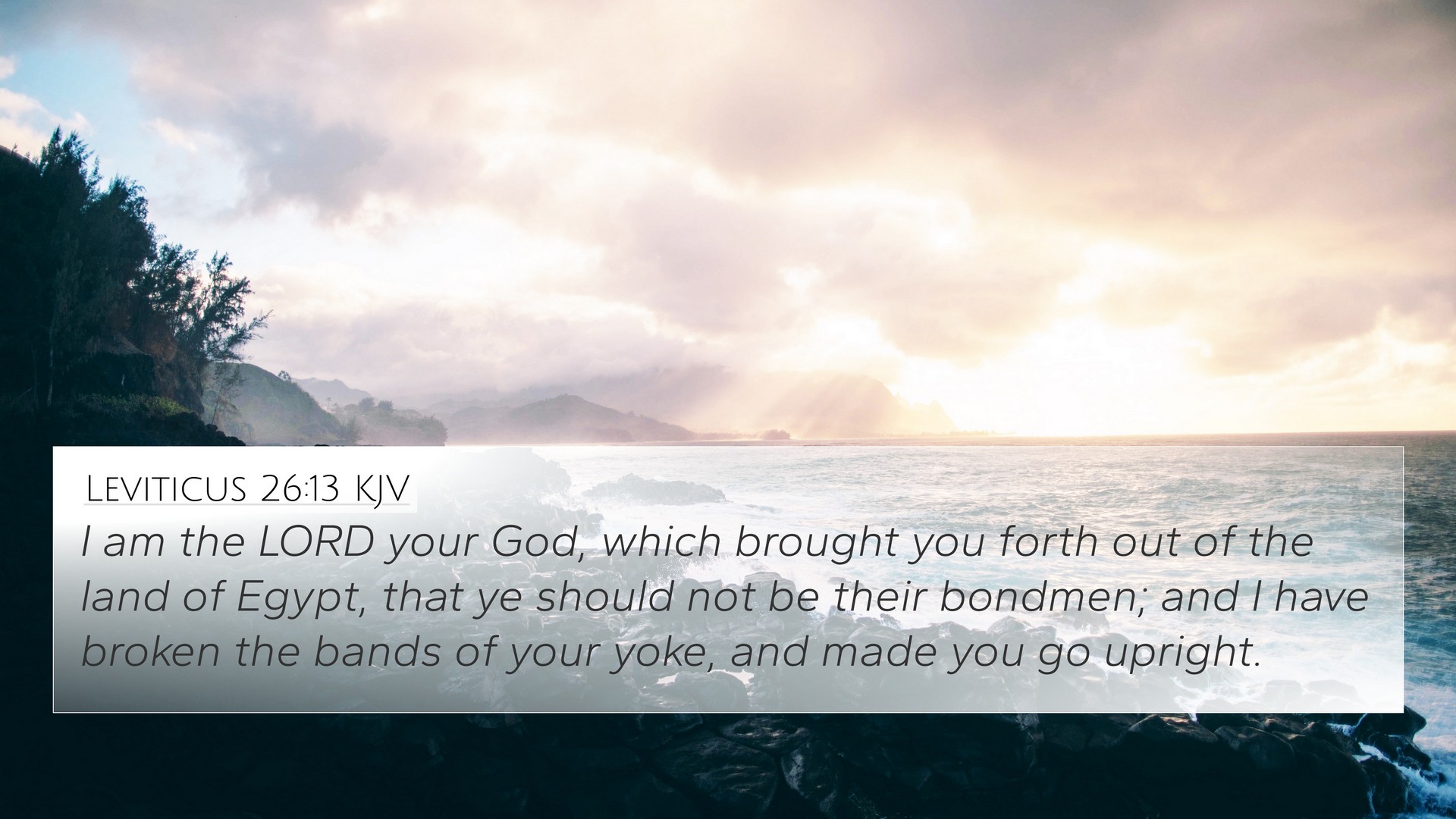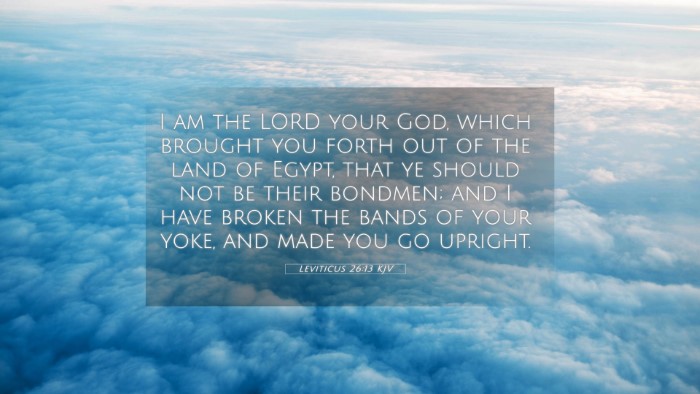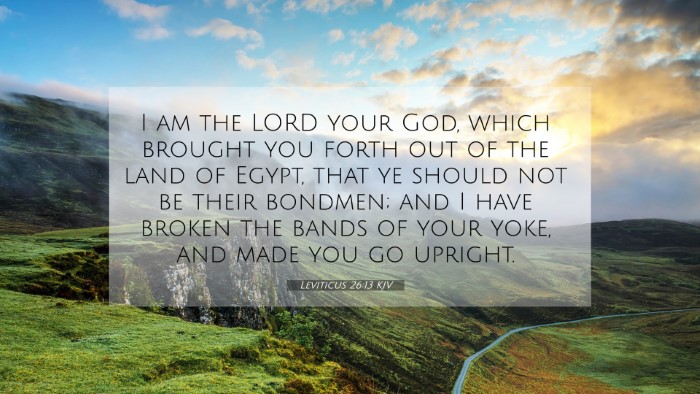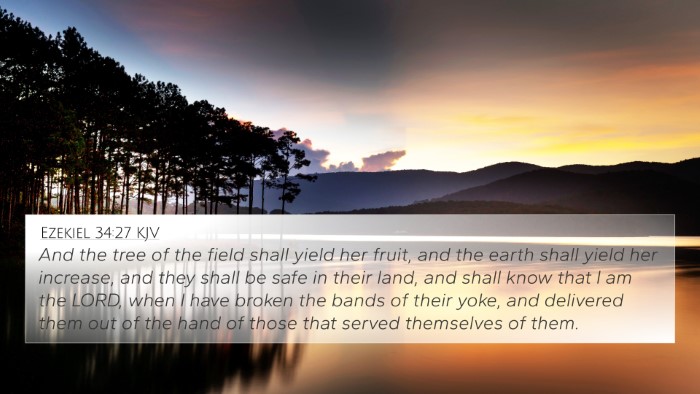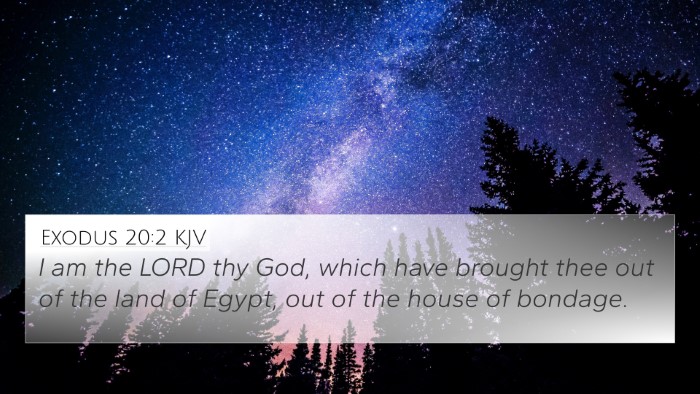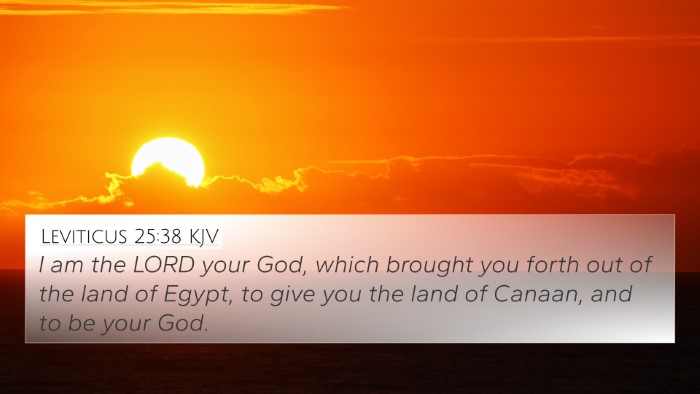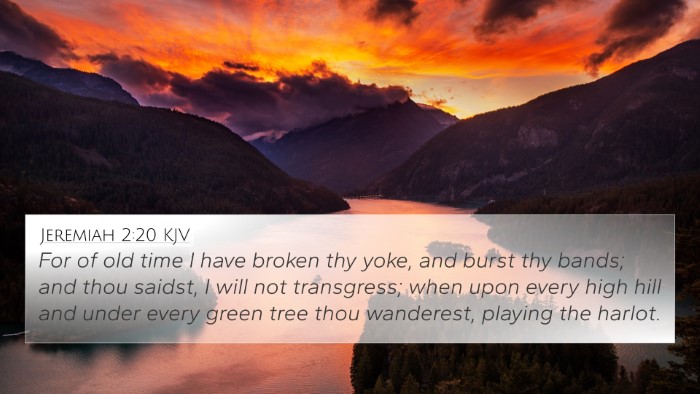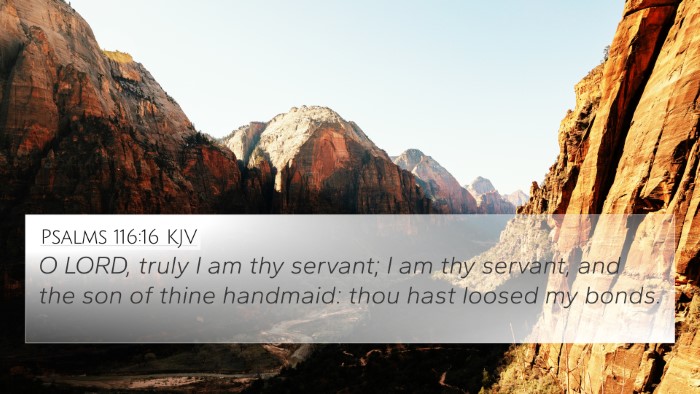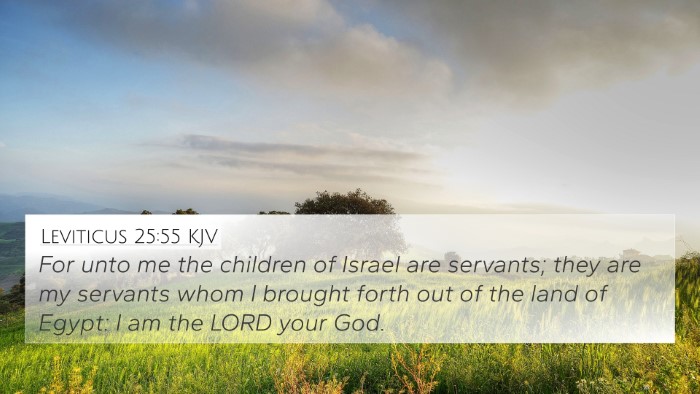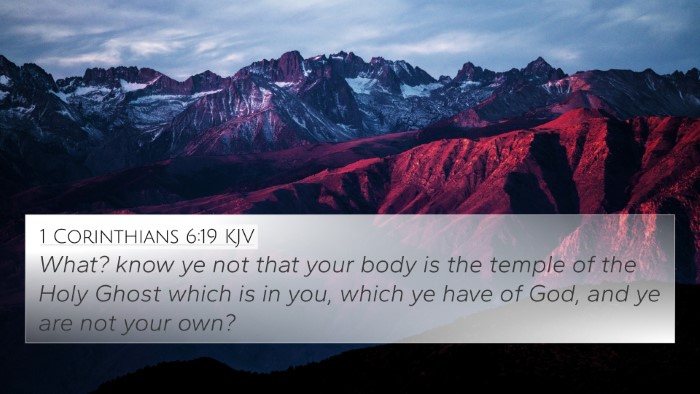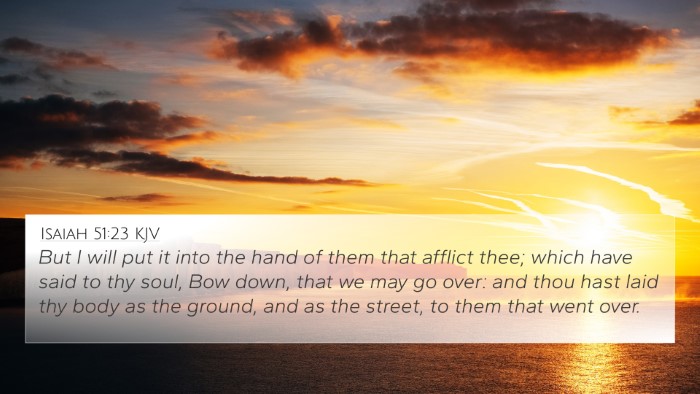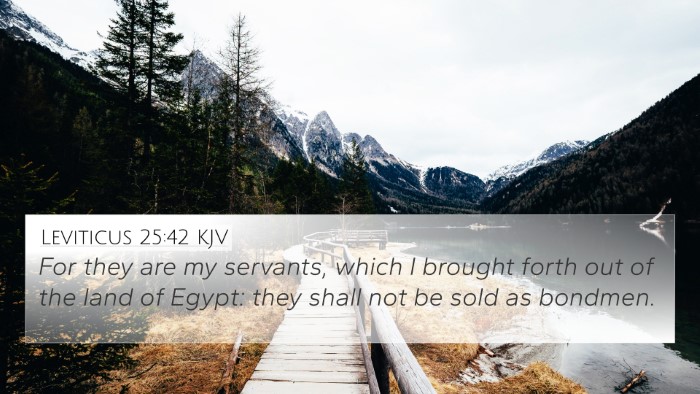Understanding Leviticus 26:13
Verse: Leviticus 26:13 - "I am the Lord your God, who brought you out of the land of Egypt, that you should not be their slaves; and I have broken the bands of your yoke and made you walk upright."
Summary of Meaning
Leviticus 26:13 emphasizes God's deliverance of the Israelites from Egyptian bondage and outlines the covenant relationship God establishes with them. This verse encapsulates both the historical act of liberation and the ongoing spiritual significance of walking in freedom under God's rule.
Commentary Insights
Matthew Henry
Henry highlights the importance of remembering God’s past deeds, noting that the act of deliverance should lead the people to a life of obedience. He emphasizes that true freedom comes from God, not merely from physical liberation but from serving Him as their sovereign Lord. The breaking of yokes signifies not only liberation from oppression but an invitation to live righteously.
Albert Barnes
Barnes points out that the phrase “I have broken the bands of your yoke” is a metaphor for the removal of burdens. He correlates this deliverance with the expectation of covenant faithfulness among the people. He notes that God seeks to establish a relationship and guide the Israelites in a manner that reflects their newfound freedom, underscoring the theme of servitude to God rather than to sin or idols.
Adam Clarke
Clarke discusses the ramifications of Israel’s liberation in a broader theological context. He mentions that this event demonstrates God’s commitment to His people and serves as a reminder of their obligation to uphold the covenant. Clarke connects this passage to the idea of receiving the law, which is part of the journey from slavery to living under divine governance.
Cross-References and Thematic Connections
This verse is richly connected to various other scripture passages that highlight themes of liberation, covenant, and servitude. Here are 10 key Bible cross-references related to Leviticus 26:13:
- Exodus 20:2: "I am the Lord your God, who brought you out of the land of Egypt, out of the house of bondage." - This verse reiterates God's role as the liberator.
- Deuteronomy 5:6: "I am the Lord your God, who brought you out of Egypt, out of the house of bondage." - Similar to Exodus 20:2, emphasizing the call to remember deliverance.
- Galatians 5:1: "Stand fast, therefore, in the liberty by which Christ has made us free, and do not be entangled again with a yoke of bondage." - Reflection on the spiritual freedom provided through Christ.
- Romans 6:6: "Knowing this, that our old man is crucified with him, that the body of sin might be destroyed, that henceforth we should not serve sin." - Highlights the freedom believers have from sin.
- Isaiah 10:27: "And it shall come to pass in that day, that his burden shall be taken away from off thy shoulder, and his yoke from off thy neck." - Prophetic assurance of freedom from oppression.
- Jeremiah 30:8: "For it shall come to pass in that day, saith the Lord of hosts, that I will break his yoke from off thy neck, and will burst thy bonds." - God’s promise to deliver His people.
- 1 John 5:3: "For this is the love of God, that we keep his commandments: and his commandments are not grievous." - The connection between love, obedience, and freedom.
- Psalm 105:43-45: "And he brought forth his people with joy, and his chosen with gladness: And gave them the lands of the heathen; and they inherited the labor of the people." - Celebrating God’s deliverance and provision.
- John 8:36: "If the Son therefore shall make you free, ye shall be free indeed." - The ultimate freedom found in Christ.
- Matthew 11:30: "For my yoke is easy, and my burden is light." - Jesus’ invitation to find rest and freedom in Him.
The Importance of Cross-Referencing
Understanding the connections between Bible verses can deepen one's appreciation of Scripture and illuminate theological themes. By employing tools for Bible cross-referencing, readers can explore thematic Bible verse connections and uncover the layers of meaning within biblical texts.
Tools for Bible Cross-Referencing
To effectively study connections between Bible verses, consider using:
- Bible concordances to locate similar themes and topics.
- Cross-reference Bible study guides that map out thematic links.
- Online resources that offer comprehensive Bible cross-reference materials.
- Bible reference resources that provide context and commentary on individual verses.
- Cross-reference systems that organize scripture in a way that highlights connections.
Conclusion
Leviticus 26:13 shows how God’s act of liberation reflects His ongoing commitment to His people. The verse serves as both a historical reminder and a theological foundation for understanding our relationship with God. Through cross-referencing and thematic study, believers can better grasp the interconnectedness of scripture, enhancing their spiritual journey and obedience to God's commandments.
